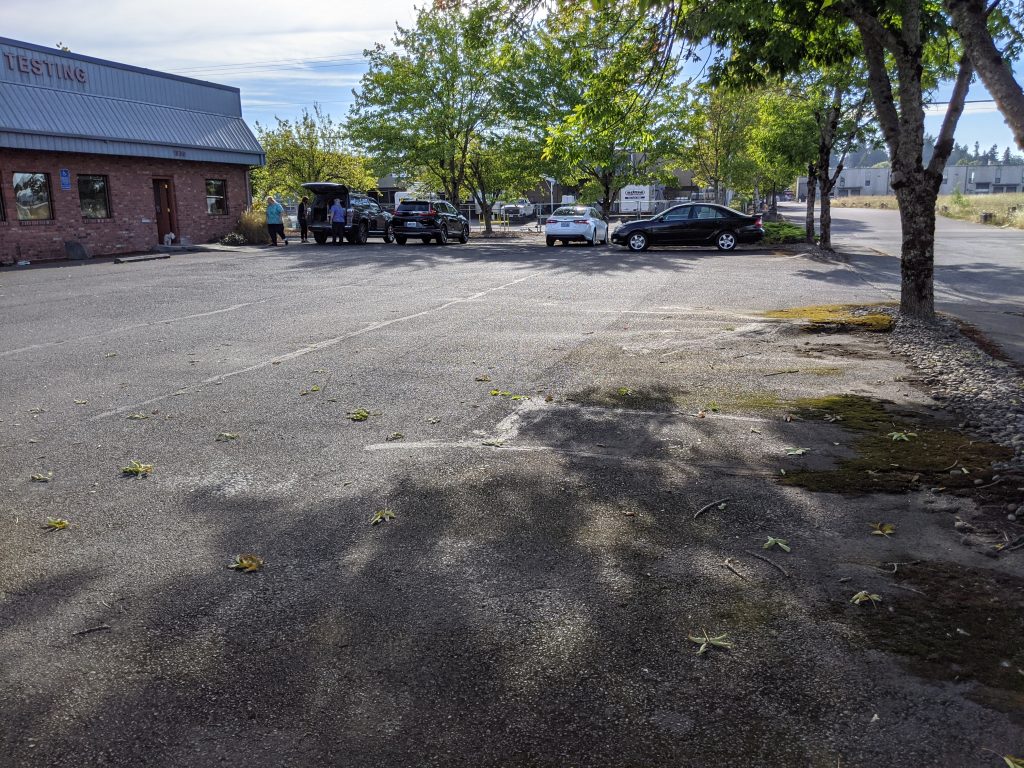Moss in Oregon may seem innocuous, but when it comes to asphalt surfaces, it can pose a significant threat to their integrity and longevity. In this comprehensive guide, we’ll explore the importance of Moss Control on asphalt and the potential consequences of neglecting this critical aspect of maintenance.
What is Moss:
Moss, a small, non-vascular plant that thrives in moist, shaded environments, can quickly take root and spread across asphalt surfaces. While it may appear harmless at first glance, moss can wreak havoc on asphalt in several ways, ultimately leading to costly repairs and premature deterioration if left unchecked.
One of the most immediate concerns associated with moss growth on asphalt is its ability to trap moisture. As moss spreads and forms a dense mat on the surface, it creates a barrier that prevents proper drainage and airflow. This trapped moisture creates an ideal environment for microbial growth, including algae and fungi, which can further degrade the asphalt’s structure.


Destroying Asphalt:
Additionally, moss roots can penetrate the surface of the asphalt, causing it to crack and weaken over time. These cracks not only compromise the structural integrity of the pavement but also provide additional entry points for water and debris, exacerbating the problem and accelerating the deterioration process.
Furthermore, moss growth can create traction hazards, especially in shaded or damp areas where the surface remains moist for extended periods. The presence of moss on asphalt surfaces can make them slippery and unsafe for pedestrians and vehicles alike, increasing the risk of accidents and injuries.
Controlling moss on asphalt surfaces is essential to preserving their integrity and ensuring their long-term functionality. Fortunately, there are several effective methods for addressing moss infestations and preventing future growth:
- Regular Cleaning: The first step in controlling moss on asphalt is to remove any existing growth through thorough cleaning. High-pressure washing or scrubbing with a stiff brush and a mild detergent can help eliminate moss and other organic matter from the surface of the asphalt.
- Chemical Treatments: Chemical treatments, such as moss-killing agents or biocides, can be applied to the asphalt surface to eradicate moss and inhibit future growth. These treatments are typically formulated to target moss specifically while minimizing harm to surrounding vegetation and the environment.
- Sealcoating: Sealcoating is a preventive measure that involves applying a protective layer of sealant to the asphalt surface. In addition to enhancing the appearance of the pavement, sealcoating creates a barrier that helps prevent moisture infiltration and inhibits the growth of moss and other organic matter.
- Improving Drainage: Proper drainage is essential for preventing moisture buildup and minimizing the conditions conducive to moss growth. Clearing debris from drains and gutters, repairing any damaged drainage systems, and ensuring that water is directed away from asphalt surfaces can help mitigate the risk of moss infestations.
- Regular Maintenance: Ongoing maintenance of is key to controlling moss on asphalt and preserving its integrity over time. This includes routine inspections, prompt repair of any cracks or damage, and proactive measures to address potential moss growth before it becomes a problem.
See Something Say Something:
In addition to these practical measures, raising awareness about the importance of moss control among property owners, managers, and municipalities is crucial. By understanding the potential consequences of moss infestations and taking proactive steps to address them, stakeholders can protect their investments and ensure the safety and functionality of asphalt surfaces for years to come.
In conclusion, controlling moss on asphalt surfaces is essential to preventing costly damage and maintaining their integrity and safety. By implementing effective moss control strategies, such as regular cleaning, chemical treatments, sealcoating, improving drainage, and ongoing maintenance, property owners can protect their investments and ensure the long-term durability of their asphalt surfaces.


